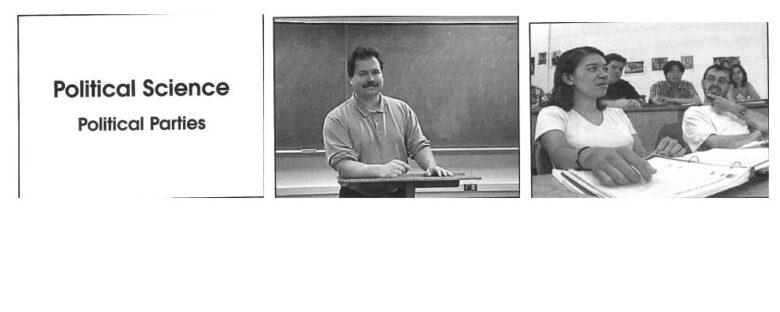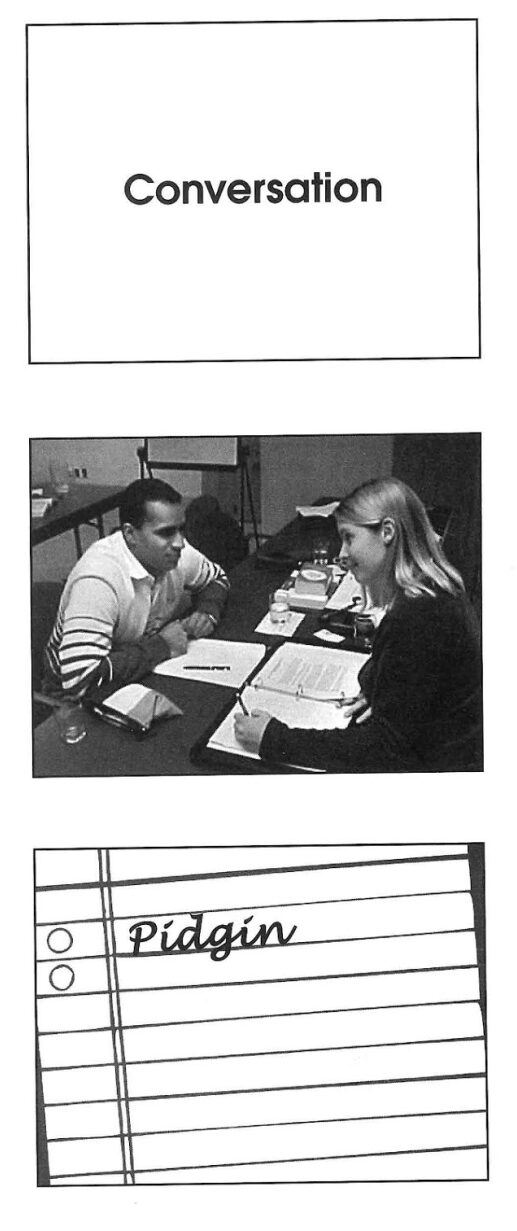https://www.youtube.com/watch?v=tbPU-dJ6qjY
QUESTIONS 12-17
12. How does the professor develop the topic of political parties?
(A) By comparing the goals of different parties
(B) By promoting the views of a specific party
(C) By describing parties in a two-party system
(D) By explaining how to organize a party
13. Listen again to part of the lecture. Then answer the question.
Why does the professor say this: O
(A) TO test the students’ knowledge of parties
(B) To find out which party the students support
(C) To introduce a point that he will make
(D) To show that all states have a two-party system
14. Listen again to part of the lecture. Then answer the question.
What does the professor imply about political parties?
(A) Parties make decisions based on the interests of several organizations.
(B) Parties can never accomplish everything that they would like to do.
(C) Parties carry on their work through the efforts of unpaid volunteers.
(D) Parties are necessary in the exercise of democracy in national states.
15. Based on the information in the lecture, indicate whether each statement below describes political parties.
For each sentence, click in the correct box.
| Yes | No | |
| They are a group of people who come together mainly for amusement. | ||
| They organize voters and compete for support on major issues. | ||
| They are voluntary organizations of people who agree on public policies. | ||
| They have research offices that develop positions on important issues. |
16. What does the professor mean when he says this:
(X) It is possible to enjoy politics but dislike government at the same time.
(T) A political party cares about major issues, but a government doesn’t care.
(^) Politics is about competition, while government is about responsibility.
(D) Elections and government are like two sides of the same coin.
17. Why does the professor say this: Q
(A) To show how major parties usually deal with the same issues
(B) To suggest that both parties should give education more attention
(C) To contrast the philosophy and methods of opposing parties
(D) To point out which party is more concerned with education
QUESTIONS 18-22
18. What are the students mainly discussing?
(A) Languages that connect speakers of diverse languages
(B) The evolution of the world’s major languages
(C) Why it is important to learn a second language
(D) Similarities between linguistics and anthropology
19. What is the woman’s attitude toward her linguistics class?
(A) She thinks there is too much homework.
(B) She is confused most of the time.
(C) She thinks her professor is very nice.
(D) She finds the lecture topics interesting.
20. According to the conversation, which languages are lingua francas?
Click on two answers.
A. Italian
B. English
C. Polish
D. Swahili
21. Why does the woman say this: O
(X) To express amusement at the man’s pronunciation
(T) To give another word that has the same meaning
(c) To correct the man’s misunderstanding of a word
(J) To help the man with a spelling problem
22. Based on the conversation, indicate whether each sentence below describes a lingua franca or a pidgin.
For each sentence, click in the correct box.
| Lingua franca | Pidgin | |
| It usually develops as a universal business language. | ||
| It is a simplified language that blends two or more languages. | ||
| It is the common language of many people who speak various languages. | ||
| It is easy to learn because its grammar and vocabulary are simple. |



